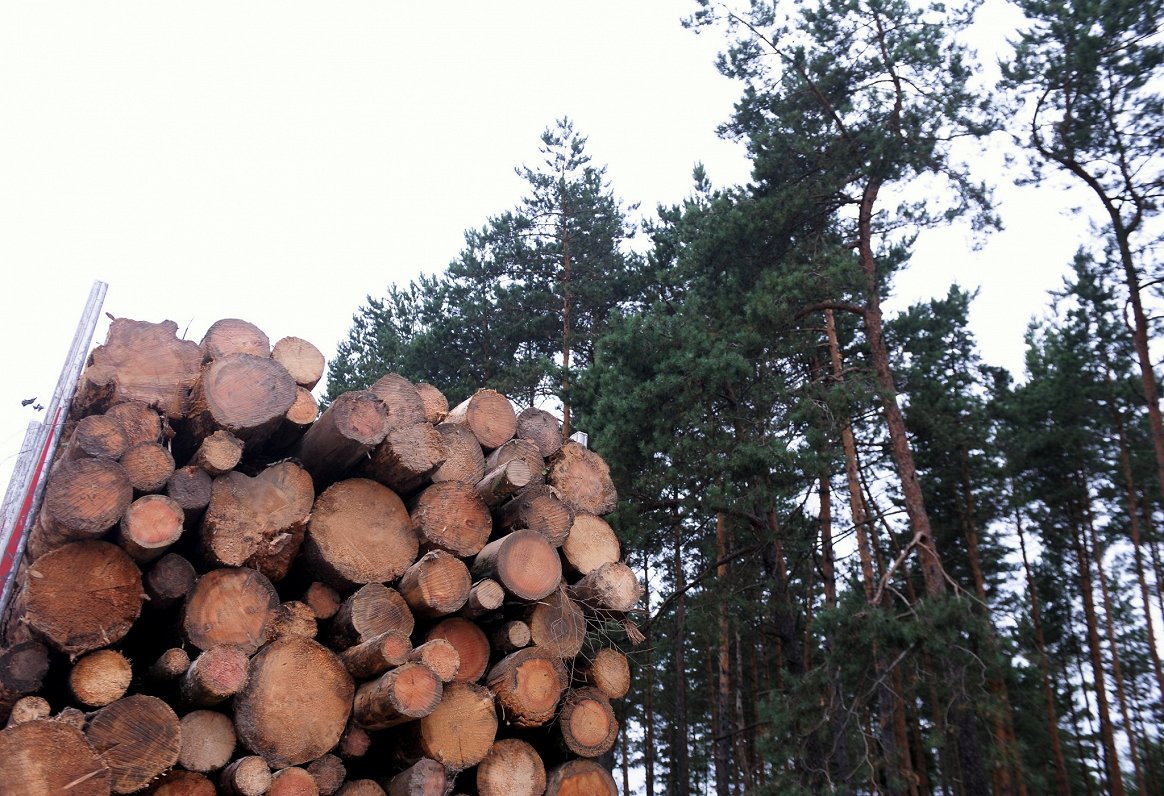“E-silva” is a forest auction platform for felling areas and forest properties. Normunds Štolcers, the company's board member, said that currently prices for wood used as fuel have fallen:
“Both companies and individuals directly or indirectly linked to heating purchased energy wood and filled storage rooms so demand was growing and the price with it. It is now a time when demand is seemingly satisfied [..]. The price drop, when it comes to wood, was slightly above 10%. Such a market position is certainly transitory, as the presence of a harsher winter will also increase demand for energy wood and the price, surely, will settle down. But a panic supply of fuel wood reserves, as happened before this winter, certainly we don't expect that.”
According to Kristaps Klauss, executive director of the Wood Industry Federation, the unusually warm autumn is one of the reasons why the price of wood fuels is declining: "In Europe, the atypical warm weather so far has, of course, had an impact on energy prices and fuel prices of all kinds. We see both gas and wood [prices] have declined at the moment, both for chips and for pellets. There was a drop in prices for premium pellets everywhere, and perhaps it even started faster in Central Europe[..]. On the other hand, we focus more on woodchips, and look at what is happening in the Baltic region and these price drops are roughly the same in Latvia, Lithuania, and Estonia. But on average, if taken, the drop in prices from the highest point is around 10-20% already. It must be understood that not only warmth affects this price, but also, in reality, the rather small amount of rainfall. if it is the way it has been, dry and warm, then it is more likely that prices will fall further."
Smaller, but the price drop is currently also observed in the field of sawlogs, at, are about 7%, according to Štolcers.
However, consumers have to consider that wood will not be as cheap as before Russia's invasion of Ukraine. According to Kristaps Klauss, wood chips are also growing rapidly as fuel consumption in Latvia. If we used 6 million chips for heating in 2020, it could be 8 million next year.
“Prices may also be affected by the fact that if we introduce different green deal directives in Europe as a whole or introduce them inexpertly in Latvia, it may suddenly appear that we will have to start buying emission allowances for wood fuels."
The price of wood also depends on the behavior of forest processors: if they reduce logging volumes in anticipation of price increases, the price could also grow.






























